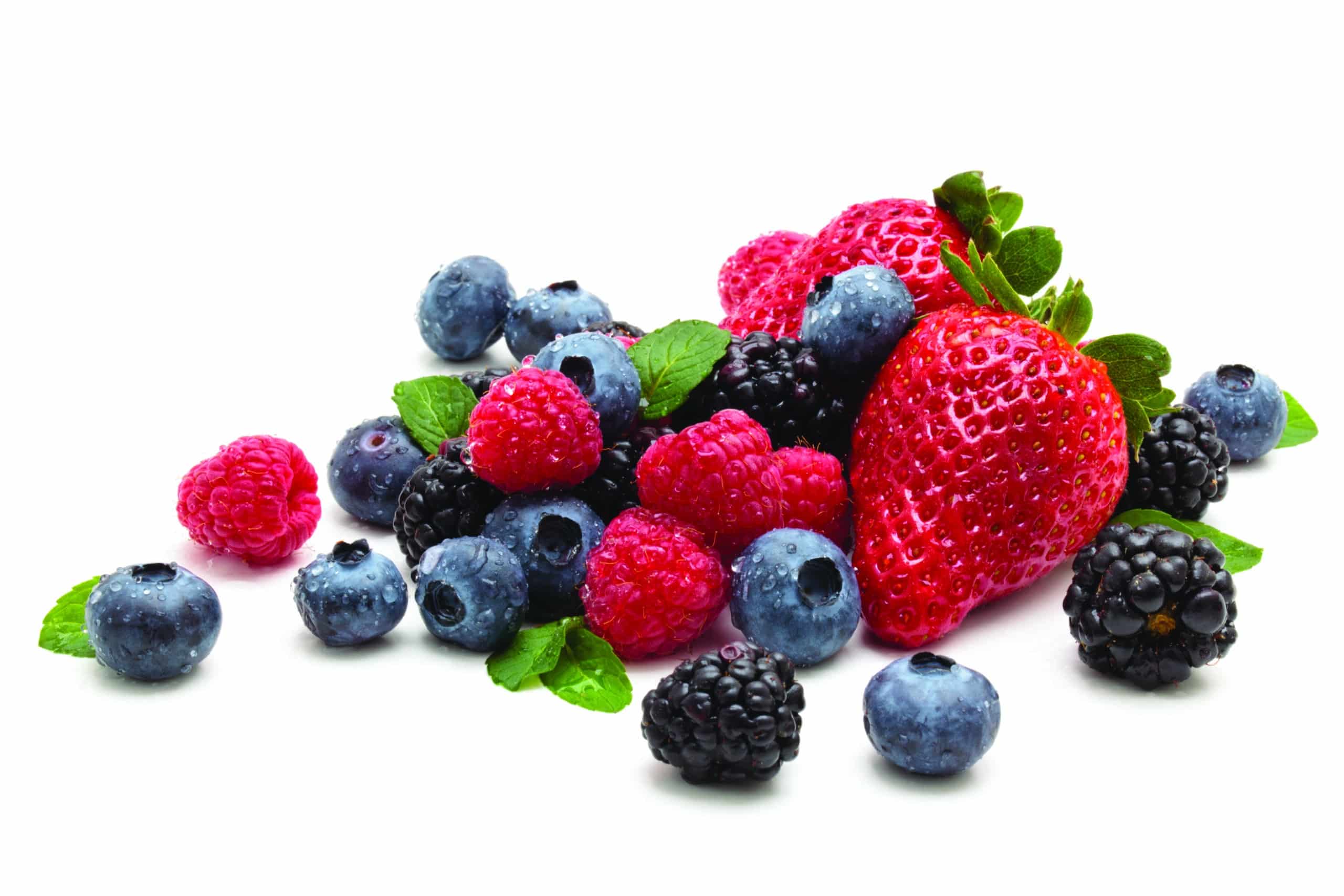Summer Fruits and Veggies

Picking the Season’s Prime Produce
A seasonal bounty of fruits and vegetables is in bloom everywhere from your grocery’s fresh foods section to local farmers’ markets, and in your own backyard garden. The following is advice from experts on how to purchase summer fruits and veggies at its peak, and store them safely, until ready to enjoy.
Berries and Cherries. Look for plump, unblemished fruits with no dark spots or fuzzy white mold; raspberries, blackberries and strawberries should be fragrant. All are shiny when ripe – except for blueberries, which will have a dull matte finish. While most berries can be refrigerated for up to a week, raspberries can start fading more quickly; when that occurs, The Spruce Eats recommends freezing them for use in smoothies and other recipes. To extend their life, do not wash fruit when you unpack your groceries; wait until right before you eat them.
Corn. Choose uncut silks coming out of tightly closed, bright green husks that smell slightly grassy, advises Martha Stewart; and peel back a tad to make sure the kernels look plump and healthy. Refrigerate corn with husks on and use as soon as possible.
Cucumbers and Peppers. Look for firm, shiny vegetables without blemishes, wrinkles or soft spots. According to Have a Plant, cucumbers and peppers can be refrigerated in a plastic bag for up to one week.
Grapes. Choose firm, plump grapes with green healthy stems. They can last up to two weeks when refrigerated. Or try an easy frozen treat: Place on a baking sheet; freeze until firm, and enjoy. Store leftovers in a freezer-safe bag for up to 12 months.
Lettuces. Eliminate those with wilted or broken leaves. Lettuce can be stored for up to four days when refrigerated; darker lettuces tend to last longer than pale, tender varieties. Wash all lettuces just before using.
Melons. Select watermelons without flat sides or dents, and choose ones with a heavy weight for optimal juiciness. Cantaloupe and honeydew melons are best when they have a pale yellow rind and flowery smell at the stem. Harvest to Table recommends storing whole ripe melons in the refrigerator for up to a week to avoid spoiling; cut melons will keep for up to three days.
Plums, Nectarines, Peaches. Opt for vibrant colors, a firm feel, and beautifully fragrant aroma for nectarines and peaches. Store unripe plums, nectarines and peaches in a paper bag until ripe. When ripe, peaches and nectarines can be stored at room temperature for use within a few days; plums can be kept fresh for up to five days in the refrigerator.
Tomatoes. Pick vividly colored, medium-firm tomatoes with smooth, shiny skin. To preserve the freshness and natural flavor of unripe tomatoes, Master Class recommends storing them on a countertop away from direct sunlight. They will last a week on countertops and up to two weeks if stored in the refrigerator.
Zucchini and Summer Squash. Look for smooth-skinned, small to medium size vegetables. Eating Well advises storing zucchini in the crisper drawer of your refrigerator, in either a plastic or paper bag with one end open to ensure good ventilation.

